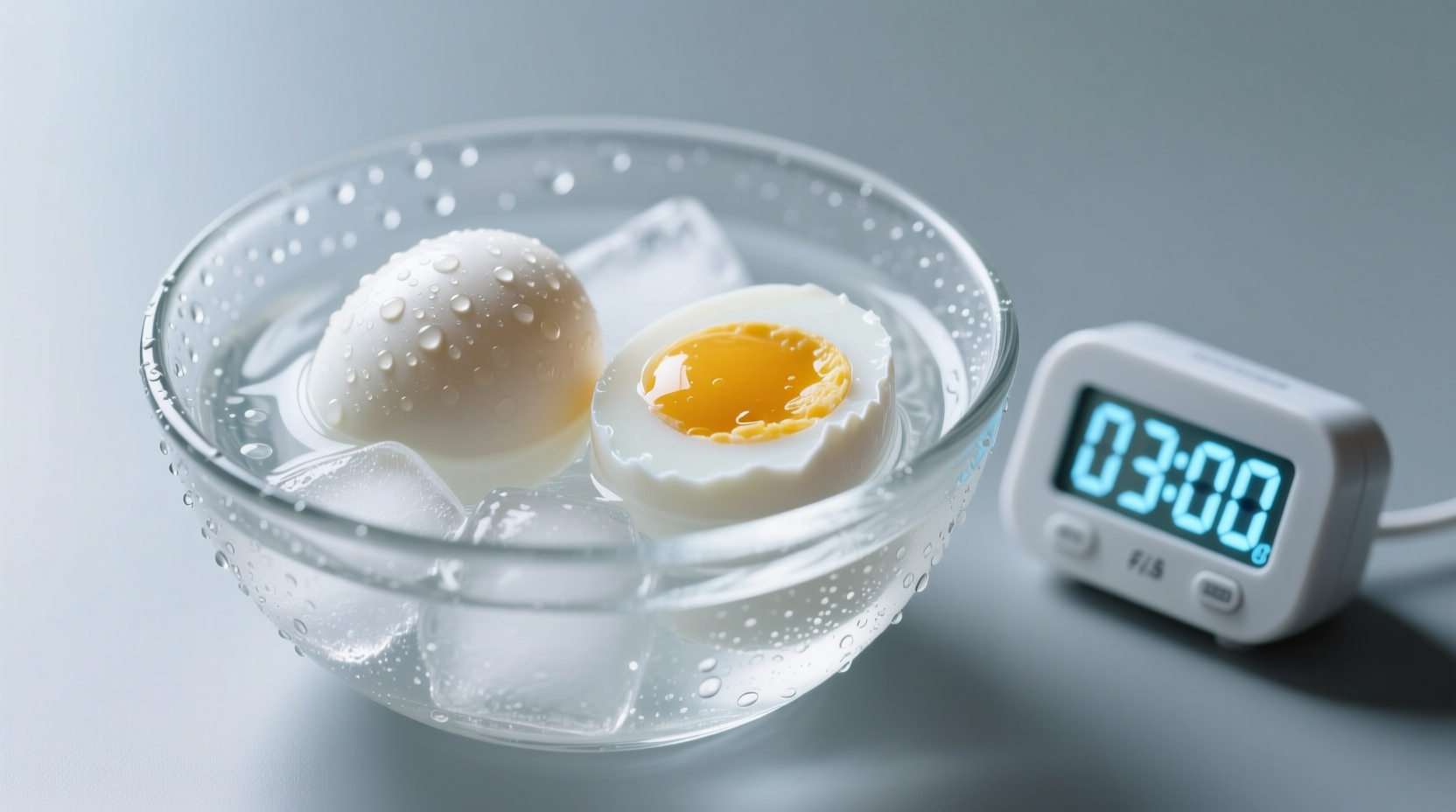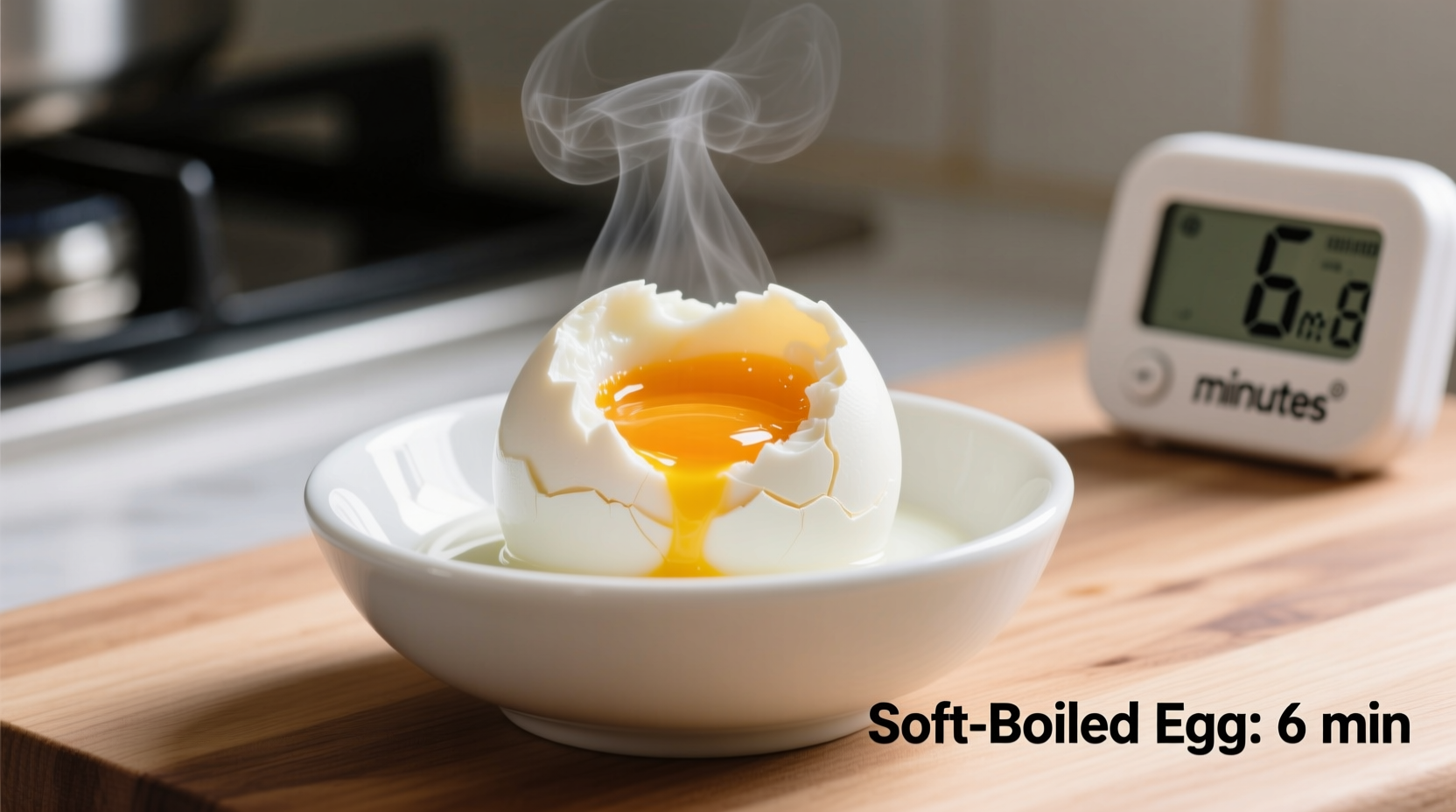Boiling eggs seems simple, but getting that perfect yolk consistency—whether you prefer runny, jammy, or fully set—requires precise timing and technique. Get it right, and you'll have beautifully cooked eggs every time. Get it wrong, and you're left with rubbery whites or undercooked yolks. Let's break down exactly how long to boil eggs for your preferred doneness, with science-backed methods that work whether you're making breakfast for one or meal-prepping for the week.
Understanding Your Perfect Egg Doneness
The "right" boiling time depends entirely on your desired yolk texture. Here's what happens inside your egg at different cooking intervals:
| Boiling Time | Yolk Consistency | White Consistency | Best For |
|---|---|---|---|
| 4-5 minutes | Completely liquid center | Set around edges, soft center | Tea eggs, dipping with toast |
| 6-7 minutes | Thickened but pourable | Firm but tender | Salad toppers, ramen eggs |
| 9-10 minutes | Creamy, slightly soft center | Fully firm | Deviled eggs, egg salad |
| 12 minutes | Fully set, no green ring | Firm but not rubbery | Meal prep, pickled eggs |
The Science Behind Perfect Boiled Eggs
Egg proteins begin coagulating at specific temperatures, which explains why timing is so critical. According to the USDA Food Safety and Inspection Service, egg whites start setting at 140°F (60°C) while yolks begin to firm at 150°F (66°C). The ideal temperature range for fully cooked but tender eggs is 160-170°F (71-77°C).
Here's the protein transformation timeline during boiling:
- 0-3 minutes: Whites begin coagulating from the outside in
- 4-6 minutes: Outer white fully sets while yolk remains liquid
- 7-9 minutes: Yolk begins thickening while center remains soft
- 10-12 minutes: Yolk fully sets without developing a green sulfur ring
Step-by-Step Perfect Boiled Egg Method
Follow these professional-tested steps for consistently perfect boiled eggs:
- Start with room-temperature eggs (take from refrigerator 30 minutes before cooking) to prevent cracking
- Place eggs in single layer at bottom of saucepan, cover with 1 inch of cold water
- Bring to gentle boil over medium heat (not rapid boil to prevent cracking)
- Immediately reduce heat to maintain gentle simmer once boiling begins
- Set timer based on your desired doneness (see chart above)
- Prepare ice bath in separate bowl while eggs cook
- Transfer eggs to ice bath immediately when timer ends (stops cooking process)
- Cool for 15 minutes before peeling for easiest shell removal

Altitude and Other Special Considerations
Boiling times change based on your elevation. Water boils at lower temperatures as altitude increases, which affects cooking time. According to Colorado State University Extension guidelines, add 1 minute to cooking time for every 1,000 feet above sea level. For example:
- Sea level: 12 minutes for hard-boiled
- 5,000 feet: 17 minutes for hard-boiled
- 7,500 feet: 19-20 minutes for hard-boiled
Other factors affecting boiling time:
- Egg size: Add 1-2 minutes for extra-large/jumbo eggs
- Starting temperature: Refrigerated eggs need 1-2 extra minutes
- Water volume: More water requires slightly longer to return to boil after adding eggs
Troubleshooting Common Boiled Egg Problems
Eggs cracking during cooking? Add 1 teaspoon of vinegar to the water to help whites coagulate faster if a crack occurs. Start with room-temperature eggs and lower them gently into the water with a spoon.
Difficult peeling? Use eggs that are 7-10 days old (not super fresh), as the air pocket develops making peeling easier. The ice bath step is critical—cooling creates contraction between membrane and shell.
Green ring around yolk? This harmless but unattractive discoloration happens when eggs cook too long or at too high temperature. Stick to the recommended times and use the ice bath to stop residual cooking.
Advanced Techniques for Perfect Results
For even more consistent results, try these professional methods:
- Steam instead of boil: Place eggs in steamer basket over 1 inch of water. Steam for 15 minutes for hard-boiled. Results in more consistent cooking and easier peeling.
- Baking method: Place eggs in muffin tin in 325°F (163°C) oven for 30 minutes. Hands-off method with excellent peelability.
- Pressure cooker: Cook on high pressure for 5 minutes, then 5-minute natural release for perfect hard-boiled eggs every time.
Storing and Using Your Perfectly Cooked Eggs
Store unpeeled hard-boiled eggs in the refrigerator for up to one week. For meal prep, keep them in their shells until ready to use—peeled eggs dry out faster. To maximize freshness:
- Place in airtight container with damp paper towel
- Store in coldest part of refrigerator (not door)
- Label container with cooking date
For salad applications, slice eggs with dental floss instead of a knife for clean cuts without sticking.
Frequently Asked Questions
How can I tell if my boiled eggs are done without opening them?
Gently spin the egg on a flat surface. A fully cooked egg will spin smoothly and quickly stop when tapped, while an undercooked egg will wobble due to the liquid center.
Why do my hard-boiled eggs have a green ring around the yolk?
The green ring forms when sulfur in the egg white reacts with iron in the yolk at high temperatures. To prevent this, avoid overcooking and use the ice bath immediately after boiling to stop the cooking process.
What's the best way to peel hard-boiled eggs easily?
After the ice bath, gently tap the egg on a hard surface to create cracks all over, then roll it between your hands to loosen the shell. Start peeling from the wider end where the air pocket is located, and peel under running water to help separate shell from membrane.
Can I boil eggs straight from the refrigerator?
Yes, but cold eggs are more likely to crack when added to hot water. If using refrigerated eggs, add 1-2 minutes to your cooking time and lower them gently into the water with a spoon to prevent cracking.











 浙公网安备
33010002000092号
浙公网安备
33010002000092号 浙B2-20120091-4
浙B2-20120091-4